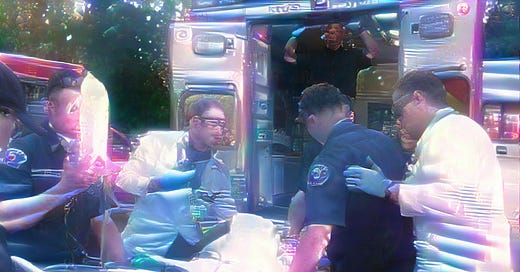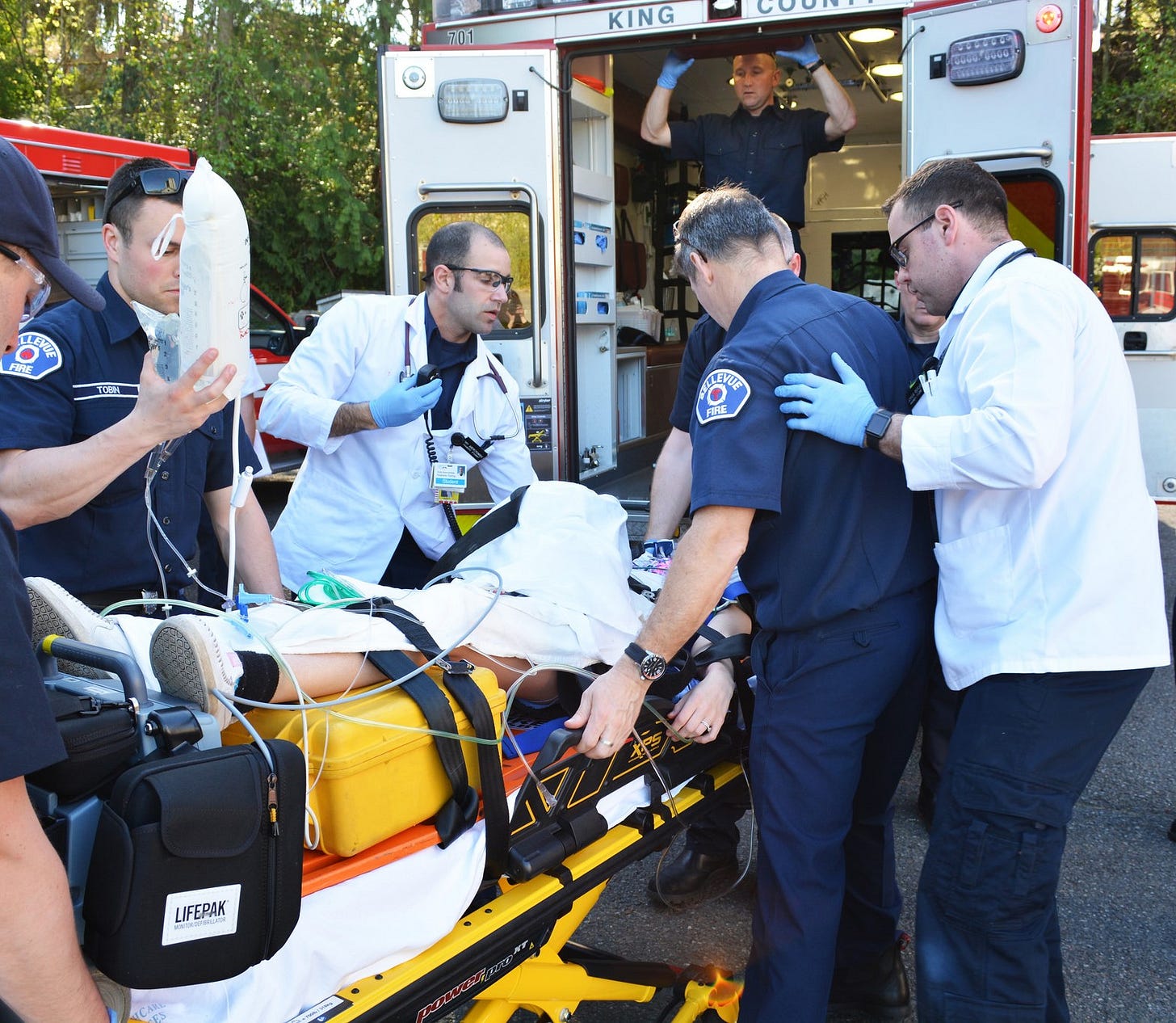The Master Betrayed #2
A series based on Iain McGilchrist's conclusions about a left brain dominated world
In the conclusion of Iain McGilchrist’s book The Master and His Emissary, the question is asked, “What would the left hemisphere’s world look like?” if the left hemisphere of the brain “became so far dominant that, at the phenomenological level, it managed more or less to suppress the right hemisphere’s world altogether”.
In this series of posts I’d like to break down his conclusion and discus just how closely our world is conforming to the left hemisphere’s perspective.
Knowledge that came through experience, and the practical acquisition of embodied skill, would become suspect, appearing either a threat or simply incomprehensible. It would be replaced by tokens or representations, formal systems to be evidenced by paper qualifications. The concept of skill and judgment, once considered the summit of human achievement, but which come only slowly and silently with the business of living, would be discarded in favour of quantifiable and repeatable processes. Expertise, which is what actually makes an expert (Latin expertus, ‘one who is experienced’), would be replaced by ‘expert’ knowledge that would have in fact to be based on theory, and in general one would expect a tendency increasingly to replace the concrete with the theoretical or abstract, which would come to seem more convincing. Skills themselves would be reduced to algorithmic procedures which could be drawn up, and even if necessary regulated, by administrators, since without that the mistrustful tendencies of the left hemisphere could not be certain that these nebulous ‘skills’ were being evenly and ‘correctly’ applied. (Iain McGilchrist, The Master and His Emissary)
This striking picture of the left hemisphere world is what I’ve seen happen in the mental health arena, where counselors, psychotherapists, and associated helping professionals are more validated on paper qualifications than any experiential embodied skills. The associations these professionals belong to (bureaucratic structures designed to “be certain that these nebulous ‘skills’ were being evenly and ‘correctly’ applied) hold the paper qualification, based primarily on learning theory, as the benchmark of competency. Some credence is given to experience, but regurgitating theory is the highest form of ‘expertise’.
A friend of mine who teaches clinical psychology at a university said there is a desire from the students to just learn the sequential steps (the algorithm) to deal with people’s problems so they can just ‘get out there’ and apply that formula. These are mostly ‘kids’ in their late teens, early 20s, with little life experience, thinking that the paper qualification (and the abstract theoretical knowledge they have regurgitated to get the piece of paper) is the key to their success in helping highly complex, non-linear, and often very messed up people. The techniques taught in many camps are “algorithmic procedures which could be drawn up, and even if necessary regulated, by administrators” which give the impression of wisdom but are far from it.
I don’t mean to be overly critical toward the mental health profession - there are many clinicians who approach their clients as unique individuals, with all the experiential wisdom they have, and don’t revert to a generic formula. The dynamic between them and their client is dynamic, flowing, organic, exploratory, both the clinician and the client co-creating the healing experience. Nothing can be assumed as they are not dealing with predictable machines, but with something that exists and flows way beyond the grasp of the left hemisphere alone.
Another friend, with years of experience in emergency medicine, says something similar - even with many protocols and procedures in place you have to think beyond the protocols, you have to have an awareness of the whole picture, a picture that can change very quickly. If you are locked into a procedure without maintaining an awareness beyond that procedure, you can get into trouble very quickly. I imagine it would be the same in most jobs that rely on expert (experiential) knowledge - flying comes to mind.
The concept of skill and judgment, once considered the summit of human achievement, but which come only slowly and silently with the business of living, would be discarded in favour of quantifiable and repeatable processes.
I cannot help but think the one-size-fits-all vaccination programs around the world is the epitome of this sort of ‘quantifiable and repeatable process’ where the execution of the process is more important than the individual outcomes (or the broader outcomes for that matter). The application of skill and judgment by individual doctors with their unique patients, formulating individualized treatments, has been completely discarded, even outlawed, for the stacking of numbers on a spreadsheet. The bureaucracy (I just can’t get away from that word), completely blind to the dangers and outright stupidity of the process, is compelled to repeat the process for the sake of a headcount. As if the headcount itself is somehow the salvation of the community. The individual is once again a decontextualized abstraction for the left hemisphere, and the category of vaxxed or not becomes the all consuming factor.
Along similar lines we’ve seen some of the actual experts in medicine, the ones who have had many years of experience, suffer the “mistrustful tendencies of the left hemisphere” and be silenced. In their place: Big Pharma funded studies of questionable design, execution and conclusions, and the much louder noise of the mass media propaganda machine. The experiential success of alternative treatments is ignored, repelled, not just because of a conspiratorial cover up, but because of the domination of a left hemisphere way of being in the world - dismissing that which it hasn’t created or known as not real or a threat.
This left hemisphere way of being in the world is now on a exponential upswing with the implementation of AI - complex algorithms that not only interprets the world from a machine perspective but is re-presenting it in the virtual world in order to replicate more of the same in the real world. It’s a machine ‘mind’ creating the world after it’s own image, and our left hemisphere is thrilled. Our sense of the transcendent, as well as the organic - that which flows - is tossed aside to make room for the precise, controllable and explicitly knowable machine utopia.
Now over to you - what resonates with you in this little snippet from McGilchrist?





The complete takeover of every aspect of society by administrative managerialism is a plague that afflicts us all. In every profession - policing, medicine, education, science, industry, journalism, the list goes on and on - professionals have been reduced to employees of impersonal bureaucracies, their decision-making power stripped away as they're forced by regulation to implement the algorithms designed by administrators who themselves frequently have no particularly notable or impressive experience within the field that they're managing.
The results have been a terrible malaise, negatively impacting the morale of professionals, as well as fostering a crisis of competence that has led directly to a collapse in confidence. All instinctively recognize that a professional who cannot use his own judgement, but must blindly enforce an algorithmic decision, cannot be trusted ... and indeed is not worthy of the trust and respect with which we know we should be able to invest in them. And the professionals know this, too.
I'd not previously considered that this could be yet another symptom of the left brain servant exceeding its proper station, but now that you point it out it makes perfect sense.
Reasoning is far more than a mere algorithm; and that identification is pernicious in the extreme.
And what happens when our most essential and core attribute - the capacity for reason, and therefore for free will - is eclipsed?
The protocolization & algorithmization of nearly everything until we have been thingified out of our humanity. (That's three made up words in one sentence.)